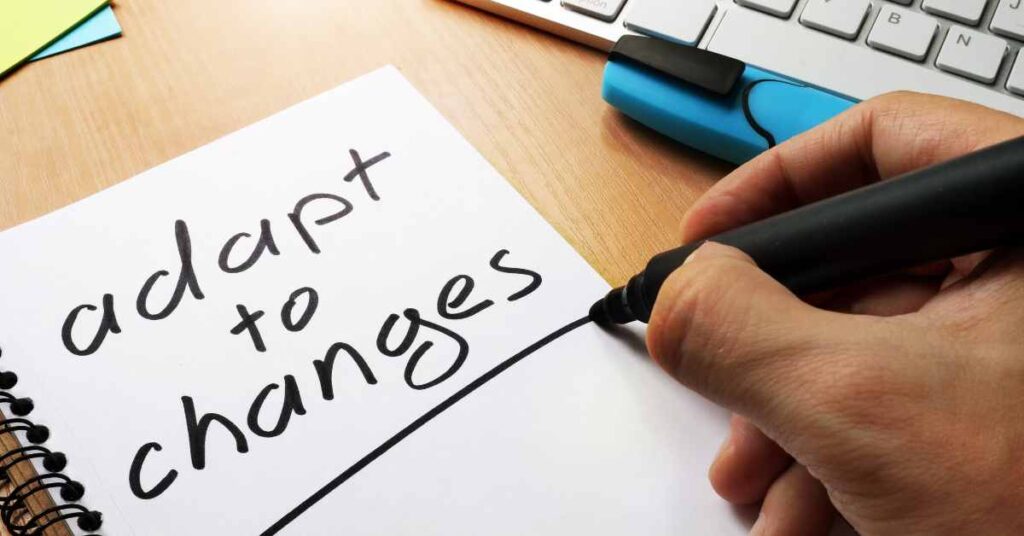
Setting better boundaries: A Therapist’s Guide. Setting better boundaries is essential for maintaining healthy relationships, both personally and professionally. As a therapist in Birmingham, I have seen firsthand the impact that setting and maintaining boundaries can have on overall well-being. In this guide, I will provide insights and strategies to help you establish and enforce boundaries that work for you.
What are Boundaries
Boundaries are the personal limits we establish to define how others can behave around us and treat us. They encompass a wide range of rules and expectations that we set for ourselves and for how we interact with others. These limits can be categorized into several types, including physical, which dictates our comfort with personal space and touch; emotional, which guards our feelings and emotional well-being; and mental, which includes our thoughts, values, and opinions.
Boundaries are not just about saying no; they are also about recognizing our right to self-care and making choices that align with our well-being. They enable us to communicate our needs and preferences clearly and respectfully. By setting boundaries, we teach others how we want to be treated and establish a framework for mutually respectful relationships.
It’s important to understand that boundaries are unique to each individual, shaped by personal experiences, culture, and individual values. They are an essential tool for navigating social interactions and protecting our mental and emotional health. Establishing clear boundaries helps us to avoid feeling overwhelmed or disrespected and ensures that our relationships are built on a foundation of mutual respect and understanding.

Why We Need Boundaries
In our lives, boundaries serve as essential barriers that safeguard our emotional, mental, and physical well-being. They are not merely lines drawn in the sand but are crucial for delineating where our individuality begins and where it ends in relation to others. The necessity for boundaries stems from a fundamental human need for respect, autonomy, and self-preservation. They empower us by allowing personal choice and control over our interactions, ensuring that our relationships are rooted in mutual respect and understanding.
Boundaries also play a pivotal role in preventing burnout and emotional exhaustion. In a world that often demands more than we can give, they help us to manage our energy and resources wisely. By clearly defining what we are willing and not willing to tolerate, we protect ourselves from potential manipulation, abuse, or neglect. This is particularly important in environments where power dynamics can be easily abused, such as in the workplace or in familial settings.
Furthermore, the establishment of boundaries fosters healthier communication. When we articulate our needs and limits, we invite open dialogue, reducing misunderstandings and conflict. This clarity enriches our interactions, making them more meaningful and satisfying.
On a deeper level, boundaries are a testament to our self-respect and self-worth. They reflect our understanding of our value and our commitment to treating ourselves with the dignity we deserve. This self-respect, in turn, signals to others how we expect to be treated, teaching them to value us in the manner we value ourselves.
In essence, boundaries are indispensable for navigating the complexities of human relationships and maintaining our integrity within them. They enable us to live authentically, respecting both ourselves and those we interact with.

Identifying Your Personal Boundary Needs: Look to Your Values
Identifying your personal boundary needs begins with a deep dive into your core values and beliefs. Consider what matters most to you in your life and relationships. Is honesty non-negotiable? Do you value independence, or perhaps reliability and consistency hold more weight in your world? Reflecting on these aspects can reveal much about the types of boundaries you need to set to feel respected, secure, and fulfilled.
Values act as a compass that guides your decisions and interactions. When your boundaries align with your values, they not only make sense to you but also feel right. They stand as a clear representation of who you are and what you stand for, making it easier to communicate and uphold them.
Start by listing out your top values. For each value, consider what boundary could support and protect it. For instance, if family time is paramount, a boundary might be no work emails after a certain hour. If personal growth is a value, perhaps a boundary is saying no to commitments that don’t align with your goals or drain your energy.
Understanding that boundaries are deeply personal and there is no one-size-fits-all approach is crucial. Your boundaries are yours alone and can differ vastly even from those of close friends or family members. This uniqueness underscores the importance of tailoring your boundaries to your individual values rather than adopting what others may deem appropriate.
Navigating the process of setting boundaries according to your values may require some introspection and possibly reevaluation of your current limits. It’s an opportunity to reaffirm what truly matters to you and ensure your boundaries reflect your highest self.
Common Challenges in Setting Boundaries
When it comes to establishing boundaries, individuals often encounter a host of obstacles that can make the process daunting. A significant challenge is the fear of confrontation or conflict that may arise from asserting one’s needs. This fear can stem from past experiences or a desire to maintain harmony, even at the cost of one’s own comfort and well-being. Another prevalent hurdle is guilt. Many people struggle with feeling selfish or unreasonable when they prioritize their own needs through boundary setting. This guilt is frequently compounded by societal or cultural expectations that glorify self-sacrifice and undervalue personal well-being.
Fear of rejection also looms large as a barrier to setting boundaries. The worry that setting limits will push others away or lead to isolation can be paralyzing, especially in contexts where acceptance and belonging are highly valued. This fear can be particularly acute in personal relationships and work environments where the desire for approval is strong.
Overcoming these challenges requires courage, self-compassion, and persistence. It involves recognizing that boundaries are not just personal preferences but essential components of self-care and respect. It also requires the understanding that while setting boundaries may initially lead to discomfort or resistance from others, the long-term benefits for one’s mental and emotional health are invaluable.
Developing strategies to navigate these obstacles is crucial, as is seeking support from understanding friends, family, or professionals who can provide encouragement and perspective during the boundary-setting process. By facing these challenges head-on, individuals can take significant steps towards fostering healthier, more fulfilling relationships and a stronger sense of self.

Communicating Your Boundaries Effectively
When conveying your boundaries to others, clarity and assertiveness go hand in hand with kindness. Initiating these conversations with “I” statements can be incredibly powerful. For example, saying “I feel overwhelmed when I take on extra projects without notice, I need to have requests made in advance,” directly expresses your need while owning your feelings. This approach not only minimizes defensiveness but also keeps the focus on your experience and needs.
Listening is just as crucial as speaking in these interactions. After sharing your boundaries, give others the space to express their own limits and needs. This mutual exchange fosters understanding and respect, laying the groundwork for healthier interactions moving forward.
Preparation can also ease the process. Anticipate questions or resistance you might encounter and think through your responses ahead of time. This doesn’t mean rehearsing a script but rather feeling confident in your rationale and the importance of your boundaries.
Remember, the goal is not to control the reactions of others but to express your needs honestly and respectfully. While you cannot predict or dictate how someone will respond, setting your boundaries clearly and assertively is a crucial step toward mutual respect and healthier relationships. It’s important to approach these conversations with the understanding that while you are responsible for communicating your boundaries, you are not responsible for how others choose to react.
Dealing With Boundary Violations
When boundaries are crossed, it’s crucial to address the issue directly and promptly. The first step is to clearly articulate what boundary was violated and express how this impacted you. Use “I” statements to focus on your feelings and avoid placing blame, such as “I felt disrespected when my request for privacy was ignored.” This method fosters a more constructive conversation and increases the likelihood of being heard and understood.
After identifying the violation, restate your boundary, emphasizing its importance to your well-being. It’s beneficial to also communicate the specific actions you expect in the future to prevent a recurrence. For example, “Moving forward, I need you to knock before entering my room.”
In situations where violations persist, setting consequences is necessary. This may include limiting interaction or adjusting the nature of your relationship with the violator. It’s vital to follow through on these consequences to reinforce the seriousness of your boundaries.
Engaging in these conversations can be challenging, and reactions may vary. Some individuals may respond defensively or dismissively. In these instances, maintaining your composure and reiterating your stance is key. Remember, the aim is not to punish but to protect your space and peace of mind.
For violations that deeply affect you or if the situation doesn’t improve, seeking support from friends, family, or a professional can provide additional strength and guidance. They can offer a fresh perspective and help strategize on further steps to take.
Addressing boundary violations is a critical aspect of boundary maintenance, requiring clear communication, consistency, and sometimes, the courage to make difficult decisions for your own mental and emotional health.

The Role of Self-Care in Maintaining Boundaries
In the journey of setting and upholding boundaries, the practice of self-care is indispensable. It goes beyond mere indulgence; it’s about engaging in activities and routines that replenish your mental, physical, and emotional reserves. By dedicating time to self-care, you fortify your capacity to assert and maintain your boundaries, ensuring that you are not depleted when the need to enforce them arises.
Self-care strategies might include engaging in regular exercise, pursuing hobbies that ignite your passion, or simply allowing yourself moments of quiet and solitude to reflect and meditate. Each of these practices serves to anchor you in your sense of self, reinforcing the importance of your needs and boundaries. It’s also a reminder that your well-being is a priority, enabling you to approach boundary setting from a place of strength rather than scarcity.
Furthermore, practicing self-compassion is a critical component of self-care in boundary maintenance. Being kind to yourself, especially when you encounter challenges or setbacks in setting boundaries, is vital. This may involve forgiving yourself when a boundary isn’t perfectly upheld or recognizing the effort it takes to assert your needs in the face of opposition.
Incorporating self-care into your routine is not a one-time action but a continuous process. It requires regular check-ins with yourself to ascertain what your needs are at any given moment and how best you can fulfill them. By making self-care a cornerstone of your life, you not only nurture your overall well-being but also empower yourself to set and enforce boundaries more effectively, with clarity and conviction.

Adjusting Over Time
Life is a journey of continuous growth and transformation, and as such, our boundary needs inevitably evolve. The boundaries that once served us well may become outdated as we encounter new experiences, relationships, and personal developments. Recognizing and adapting to these changes is crucial for maintaining healthy interactions and personal well-being.
To ensure your boundaries remain in alignment with your current state, make it a habit to periodically review them. Reflect on whether they still represent your values, support your well-being, and facilitate positive relationships. Ask yourself if there have been any shifts in your life that necessitate a reassessment of your limits.
Embrace the understanding that adjusting your boundaries is not a sign of failure but a reflection of your growth. It’s an opportunity to recommit to your self-respect and to nurture relationships that respect your evolving needs. When making adjustments, communicate these changes clearly and confidently to those affected. This ongoing process of refinement is essential for a balanced and fulfilling life, ensuring that your boundaries keep pace with the dynamic nature of your personal journey.

Want Better Relationships? Empower Counseling is Here for You
Our team of female therapists at Empower Counseling in Mountain Brook, Alabama, is here to help you set the necessary boundaries to have the relationships and the life you want. If you struggle setting healthy boundaries or keeping healthy boundaries we can help. It is easy to get started.
- Click here to schedule a fee consultation.
- Get to know your therapist.
- Start living a better life due to setting healthy boundaries.
Boundary setting is not all we help with at Empower Counseling. Kathryn, Marti, Savannah, and Lucia offer counseling services for anxiety, depression, phase of life issues, perfectionism, eating disorders, bipolar, trauma, PTSD, and women’s issues. Savannah and Marti also offer EMDR for trauma, PTSD, and anxiety.
We offer ACT counseling online throughout the state of Alabama and in person in our Mountain Brook offices to teens , counseling for college students at , The University of Alabama, Auburn University, Samford University and all colleges in the state of Alabama, young adults, professionals, and adults of all ages.
Empower Counseling is located at Office Park in Mountain Brook right off of Hwy 280.
